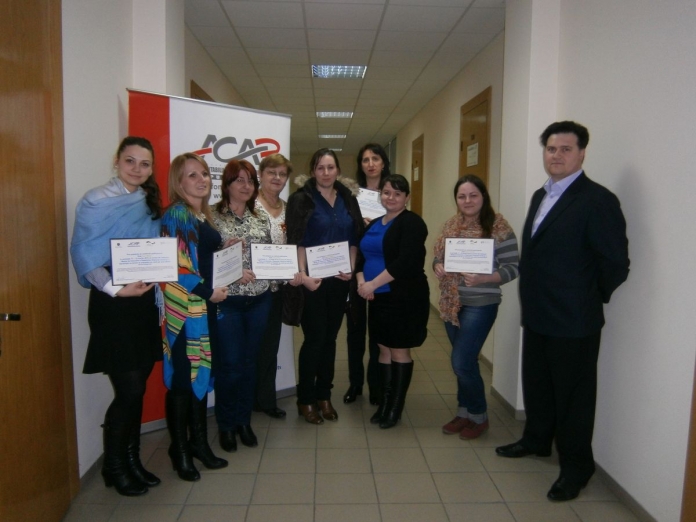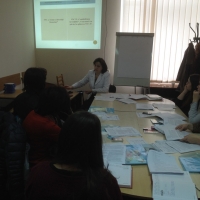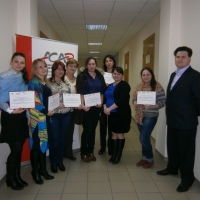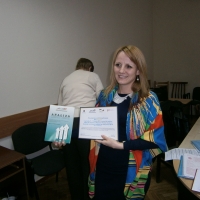Accountants from the three Regional Development Agencies – North, Center and South – are trained on 11 and 12 March 2015 on applying new National Accounting Standards, which entered into force in 2015. The training is organized by the Association of Professional Accountants and Auditors of the Republic of Moldova (ACAP). The support is provided by the German Development Cooperation through GIZ, under ‘Modernization of Local Public Services in Moldova’ project.
The training was attended by representatives of the Ministry of Finance, responsible for developing new National Accounting Standards as a result of changes in legislation. This will increase the quality of accounting records and financial statements, which will meet the international requirements in the field.
‘Such trainings are welcome and necessary in the context of frequent changes of legislative and regulatory framework. There were a lot of questions addressed on the new National Accounting Standards, amendments to the legal framework and practical issues, as well as the recent changes in legislation on social security benefits‘, says Natalia Zagaiciuc, Chief Accountant at Center RDA.
In total, 6 specialists were trained: accountant and chief accountant of each RDA.
Other thematic training sessions will be held quarterly in 2015. The trainings are held at the request of the institutional partner of GIZ project – Ministry of Regional Development and Construction (MRDC), with RDAs as its subordinate institutions.
Under the GIZ project ‘Modernization of Local Public Services in Moldova’, financial support is provided through the Regional Development Agencies, which means that they are responsible for ensuring a transparent process of public procurement and development of financial reports under the national law and donor requirements.
ACAP also has helped in developing training programs for accountants and economist of water supply and sanitation service providers, who were also trained with support from the Government of Germany.
GIZ project is implemented by German Development Cooperation through GIZ and is financially supported by the German Ministry of Economic Cooperation and Development (BMZ), the Swedish International Development Cooperation Agency (Sida), the Ministry of Foreign Affairs of Romania and the European Union.









